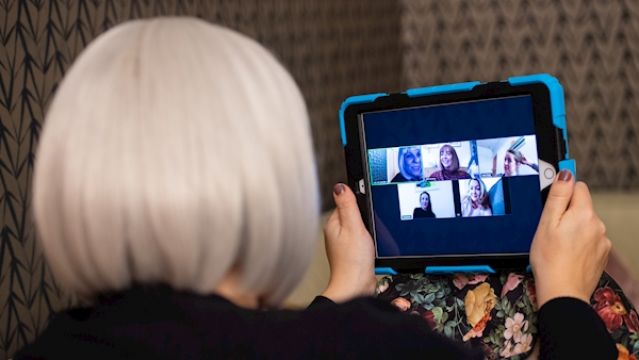Working from home during Covid-19 lockdowns has seen professionals in Ireland replace email with video chats and instant messenger, according to a new survey.
The majority of professionals now report using video chats (67 per cent), instant messenger (67 per cent) and telephone calls (44 per cent) as their main channel to communicate with colleagues.
Just over a third or 37 per cent reported the longer-established email as their main means of communication.
The findings come from a survey of 1,000 “white-collar professionals” by recruitment consultancy Robert Walters.
The survey also found that the majority (55 per cent) of professionals are in favour of full-time remote working amid a fresh lockdown in the Republic, while a further 26 per cent want at least 50 per cent of their work to be done remotely this year.
Fast track
Suzanne Feeney, director at Robert Walters Ireland, described 2020 as the year of “the world’s largest remote working experiment”.
“Employers would be amiss to think that there wouldn’t be some long-term changes to employee expectations as a result,” she said.
“Whilst the pandemic did not necessarily bring about entirely new trends in working style, it certainly fast tracked the inevitable around flexible working — speeding the transition up by as much five to ten years for some companies.
“We anticipate that some of the changes incorporated into workplaces as a result of Covid-19 in 2020 will be more enshrined in day to day working environments going forward — and for some professional industries there will be an element of remote working embedded for good.”
Almost half, or 46 per cent of respondents to the recruiter’s 2021 Ireland Salary Survey said the enhanced use of technology during remote working had improved or benefited their way of working.
A quarter found that more regular updates and check-in calls with colleagues during lockdown were a positive change, while over a third said compulsory remote working inadvertently encouraged them to improve their communication through the likes of virtual presentations and video calls.
Employer plans
The majority (57 per cent) of respondents said their overall expectations of their employer had changed in the past year due to Covid-19.
Meanwhile, 78 per cent of businesses said they would look to respond to employee expectations — including offering enhanced mental health and wellbeing policies, reducing or reconfiguring office space, and increasing investment in technology.
However, a fifth of companies reported their senior leadership team's preference for in-person work would be a key barrier to full-time remote working.
A clear finding from the survey is that there are a number of hidden benefits to office working

Despite 44 per cent of professionals reporting an increase in productivity while working from home, an overwhelming 64 per cent of employers also said that concerns around productivity remained another barrier to long-term remote working.
“A clear finding from the survey is that there are a number of hidden benefits to office working — such as providing structure, professional and personal support, social interaction, and all-round wellbeing benefits — that are not openly being discussed,” Ms Feeney said.
“With many banging the drum on the benefits of remote working and no longer having to commute, it makes it increasingly difficult for individuals to open up about the value they placed on face-to-face support from management, the ease of working on ergonomic desks and chairs, and the sense of belonging or cultural fit which provides some with a purpose,” she added.
“Whilst there is no right answer, companies will really need to take stock of working practices this year to see what will best serve the needs of both employees and the business in the long term.”







